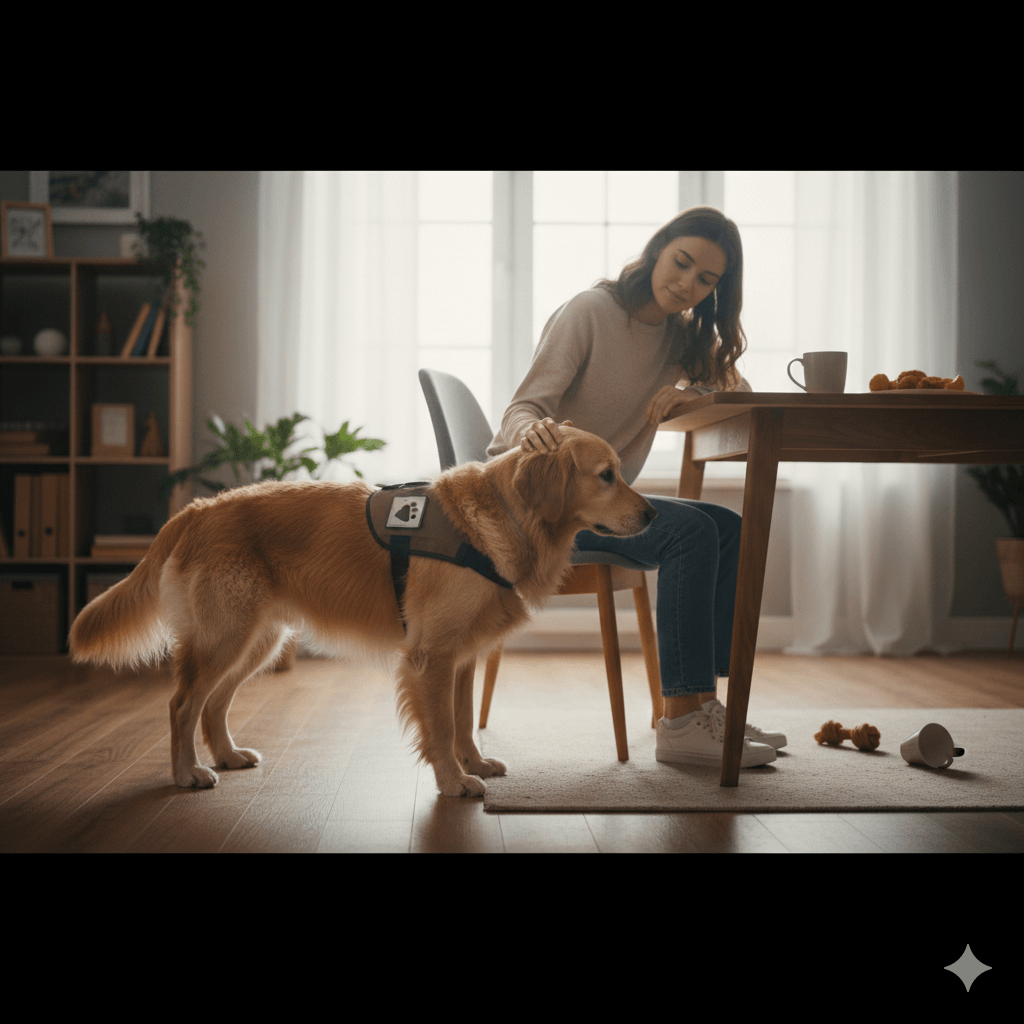How to Get Papers for a Dog: A Step-by-Step Guide for Responsible Pet Owners
Bringing a dog into your life is one of the most rewarding decisions you can make. However, being a responsible pet owner goes beyond providing love and care—it also involves ensuring your dog has the proper documentation. Whether you’ve adopted a new puppy, rescued an older dog, or are simply updating your current pet’s records, understanding how to get papers for a dog is essential. These documents not only prove ownership but also ensure your dog is healthy, registered, and protected in case of emergencies. In this guide, we’ll walk you through everything you need to know about obtaining and maintaining your dog’s paperwork.
Types of Papers Your Dog Needs: A Comprehensive List
Every dog requires specific documents to ensure they are legally compliant and healthy. Depending on your location and lifestyle, the exact requirements may vary, but here are the most common types of papers your dog will need:
Registration Papers: These documents confirm your dog’s breed and lineage, often issued by kennel clubs like the AKC (American Kennel Club).
Vaccination Records: Proof that your dog has received necessary vaccinations, such as rabies, distemper, and parvovirus.
Microchip Information: Documentation showing your dog has been microchipped, including the chip number and registration details.
License or Permit: Many cities or counties require dogs to be licensed, which often involves paying a fee and providing proof of vaccination.
Health Certificates: Required for travel, these certificates verify your dog is in good health and free from contagious diseases.
Having these documents in order not only keeps your dog safe but also ensures you’re prepared for any situation, whether it’s a routine vet visit or an unexpected trip. Always keep copies of these papers in a secure place.
Where to Get Papers for Your Dog: Key Sources
Obtaining the necessary papers for your dog might seem overwhelming at first, but knowing where to go can simplify the process. Here are the primary sources you’ll need to contact:
Local Veterinarians: They provide vaccination records and health certificates after performing check-ups or treatments.
Kennel Clubs: Organizations like the AKC issue registration papers if your dog is purebred or eligible for registration.
Animal Shelters or Rescues: If you adopted your dog, they often provide initial papers, including vaccination records and microchip details.
City or County Clerk’s Office: This is where you can apply for a dog license, which is mandatory in many areas.
Pet Microchip Companies: After microchipping your dog, you’ll need to register the chip with the company to complete the documentation process.
By reaching out to these sources, you can gather all the necessary paperwork efficiently. Remember, keeping these documents updated is just as important as obtaining them initially.
Check this guide 👉Do You Have to Pay to Adopt a Dog? Best 7 Expert Tips!
Check this guide 👉Key Questions to Ask When Adopting a Dog: Best 7 Tips!

Type of Paper | Where to Obtain It |
|---|---|
Registration Papers | Kennel clubs or breeders |
Vaccination Records | Local veterinarians |
Microchip Information | Pet microchip companies |
Dog License or Permit | City or county clerk’s office |
Health Certificates | Licensed veterinarians |
Steps to Organize and Maintain Your Dog’s Papers
Once you’ve gathered the necessary documents, organizing and maintaining them is crucial for easy access and peace of mind. Follow these steps to keep everything in order:
Create a dedicated folder or binder to store physical copies of all your dog’s papers.
Scan and save digital copies of the documents on your computer or cloud storage for backup.
Set reminders to renew licenses or update vaccinations before they expire.
Keep a small copy of your dog’s microchip information and vet records in your wallet or phone for emergencies.
Regularly review your dog’s papers to ensure they are up-to-date and accurate.
By staying organized, you’ll always have the necessary documentation ready, whether you’re visiting the vet, traveling, or facing an unexpected situation.
Common Mistakes to Avoid When Getting Papers for a Dog
While obtaining papers for your dog is straightforward, there are common pitfalls that pet owners should avoid. Being aware of these mistakes can save you time and stress:
Waiting until the last minute to renew licenses or vaccinations, which can result in fines or penalties.
Failing to register your dog’s microchip, rendering it useless if your dog gets lost.
Not keeping copies of important documents, leaving you unprepared in emergencies.
Assuming all required papers are optional, which can lead to legal issues or denied services.
Ignoring local regulations, such as breed-specific laws or leash ordinances, that may affect your dog’s documentation needs.
Avoiding these mistakes ensures your dog’s paperwork is complete and compliant, giving you peace of mind as a responsible pet owner.
Why Documentation is Essential for Your Dog’s Well-Being
Having the right papers for your dog isn’t just about compliance—it offers numerous benefits that enhance your pet’s quality of life. From safety to convenience, proper documentation ensures you’re prepared for any situation. Here’s how having the right papers can make a difference:
Proof of Ownership: Registration papers or licenses provide legal proof that the dog belongs to you, which is crucial if your dog gets lost or stolen.
Access to Services: Many boarding facilities, groomers, and trainers require vaccination records or health certificates before accepting your dog.
Emergency Preparedness: In case of natural disasters or unexpected relocations, having organized papers ensures your dog can travel safely with you.
Health Monitoring: Vaccination records help track your dog’s medical history, making it easier for vets to provide accurate care.
Peace of Mind: Knowing your dog’s paperwork is complete allows you to focus on enjoying their companionship without unnecessary stress.
Proper documentation not only protects your dog but also strengthens your bond by ensuring they’re always cared for and accounted for.
How to Handle Situations When Your Dog Comes Without Documentation
If you’ve adopted a dog without papers, don’t worry—there are steps you can take to ensure they’re properly documented. Whether you’ve rescued a stray or adopted from an informal source, here’s how to get started:
Visit a veterinarian for a full health check-up and to establish vaccination records.
Consider microchipping your dog and registering the chip with a reputable company.
Contact local authorities to inquire about licensing requirements in your area.
Research breed-specific organizations if you suspect your dog is purebred and eligible for registration.
Keep detailed notes of any new documentation you obtain to maintain an organized record.
Even if your dog didn’t come with papers, taking these steps ensures they’re protected and legally compliant. A little effort goes a long way in safeguarding your furry friend.
What to Do If Your Dog’s Documents Go Missing
Losing your dog’s papers can be stressful, but it’s not the end of the world. Replacing them is often straightforward if you know where to start. Here’s how to recover or replace lost or damaged documents:
Contact your veterinarian to request duplicate copies of vaccination records or health certificates.
Reach out to the issuing kennel club or breeder for replacement registration papers.
Update your dog’s microchip information online if the physical documentation is lost.
Apply for a new dog license through your city or county clerk’s office, providing necessary details like vaccination proof.
Store all replacement documents in a secure location to prevent future losses.
Replacing lost papers might take some time, but it’s worth the effort to ensure your dog remains protected and compliant. Being proactive will save you headaches down the road.
Frequently Asked Questions About Getting Papers for a Dog
Do I need papers for a mixed-breed dog?
While registration papers aren’t required for mixed breeds, vaccination records, licenses, and microchip information are still essential.
How much does it cost to license my dog?
Fees vary by location but typically range from $10 to $50 annually.
What happens if my dog isn’t vaccinated?
Unvaccinated dogs are at risk of contracting serious diseases and may face legal consequences in some areas.
Can I travel without health certificates for my dog?
Some destinations, especially international ones, require health certificates for entry. Check regulations beforehand.
Is microchipping mandatory?
Microchipping is required in some regions, but even if it’s not, it’s highly recommended for your dog’s safety.
Final Thoughts: Why Proper Documentation Matters
Getting papers for your dog might seem like a tedious task, but it’s a vital part of responsible pet ownership. From ensuring your dog’s health and safety to complying with local laws, these documents play a critical role in protecting both you and your furry friend. By staying organized, proactive, and informed, you can navigate the process with ease and confidence. Remember, your dog relies on you to keep their life running smoothly—starting with the right paperwork. With everything in order, you’ll have more time to focus on what truly matters: creating unforgettable memories together.
Understanding Bone Supplement for Cats: Best 7 Expert Tips! – Safe, vet-approved guidance for strong feline bones & balanced nutrition.
Bone Supplement for Dogs: Best 7 Expert Tips! – Expert guide to calcium, collagen & bone health for every life stage.
Understanding Can Cats Get Sunburn: Best 7 Expert Tips! – Protect your feline from UV damage with vet-backed prevention strategies.
How to Train a Seizure Alert Dog: Best 7 Expert Tips! – Learn expert-backed steps to nurture natural instincts into reliable, life-saving seizure alerts.





